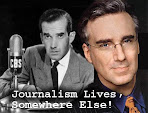(T)he fundamental problem infecting much of Congress, the media and the political class - especially those left of center - is that they are consumed with loathing for President Bush and all his works and are prepared to do anything to undermine him, even if it makes the country less safe - Morton Kondracke
(I)t is 1938 and we seem to be more in the mode of Chamberlain at Munich rather than of Churchill - Bernard Lewis
A little skepticism is healthy and goes a long way......too many people abuse it and have OD'd - Blandly UrbaneFrom Morton Kondracke at Roll Call (subscription required but the whole thing is below):
Enough already! It's harmful enough that ideological conflict and partisan politics are preventing this country from solving its long-term challenges on health care, fiscal policy and energy. Now, it's threatening our national survival.NSA Wiretaps Eavesdropping
I do not exaggerate. Bush-hatred has reached such intensity that CIA officers and other bureaucrats are leaking major secrets about anti-terrorism policy and communications intelligence that undermine our ability to fight Islamic extremism.
Would newspapers in the midst of World War II have printed the fact that the U.S. had broken German and Japanese codes, enabling the enemy to secure its communications? Or revealed how and where Nazi spies were being interrogated? Nowadays, newspapers win Pulitzer Prizes for such disclosures.
In Congress and in much of the media, the immediate reaction to news that the National Security Agency was intercepting international terrorist communications was not to say, "Good work - and how can we help?" Rather, it was to scream about a "domestic spying" scandal, as though Richard Nixon were back in the White House and tapping the telephone of Democratic National Committee Chairman Howard Dean.
And the reaction has been much the same to USA Today's story last week that the NSA "has been secretly collecting the phone call records of tens of millions of Americans" in a program that "reaches into the homes and businesses across the nation by amassing information about the calls of ordinary Americans."
Sen. Patrick Leahy (D-Vt.), ranking member on the Senate Judiciary Committee, reacted by asserting that "these are tens of millions of Americans who are not suspected of anything but we're just going to collect their phone information for the heck of it. Where does it stop?
"Similarly, Newsweek's cover this week blares "Spying On Your Calls" - no question mark used - and implies that the Bush White House could be tapping everyone's telephones.
In fact, what seems to be happening, though the details are secret, is that most long-distance phone companies have given the NSA their billing records identifying what numbers are calling what other numbers, when and for how long. Names are not included. And the NSA - not for the heck of it but to protect us from attack - is using the records to track terrorist networks and calling patterns. If a known terrorist in Pakistan calls a number in Los Angeles, I want the government to know what numbers that person calls. Don't you?
Certainly, the government will find out the names of people in a terrorist calling chain. If it wants to tap a domestic phone, it needs a warrant and, unless officials are lying through their teeth, it is asking for them.
The NSA call logs also apparently are being mined to establish patterns of terrorist-related communication - the use of pay phones, duration of calls, times of communication, etc.
But all this scarcely constitutes "reaching into homes and businesses across the nation." If the government is snooping into the business of anyone except terrorists (or drug dealers, Mafiosi and child pornographers, whose names and numbers also can be easily obtained with a subpoena), it is wasting its time and our money.
The phone companies that are cooperating with the government ought to be congratulated for participating in the war on terrorism - as they would have been in WWII. Instead, they are being hauled before the Senate Judiciary Committee as though they were criminals. And trial lawyers are circling like vultures to make them pay zillions for alleged privacy violations.
As for myself, I'm sticking with AT&T as a long-distance carrier because (according to news reports), it did cooperate. If I had Qwest, which reportedly refused, I'd cancel.
Is there a potential for abuse in the NSA spying program? There is. For instance, it would be all too easy for officials to ask the NSA to trace the phone records of the winners of those odious Pulitzers - James Risen of The New York Times and Dana Priest of The Washington Post - in an effort to uncover their sources in the name of "protecting secrets" and "fighting terrorism."
The Senate Intelligence Committee, when it quizzes former NSA Director Michael Hayden in his CIA confirmation hearings Friday, should establish that the terrorist surveillance programs have not been abused, although there is no evidence of it.
To the extent he can do so without giving away secrets, Hayden also should tell the committee and the country why these programs are so essential and what the legal basis for them is.
If the administration believes, as officials often have said, that the 1978 Foreign Intelligence Surveillance Act is obsolete in the age of super-computers and terrorism, it ought to work with Congress to rewrite the law. Skirting it won't work anymore.
But the fundamental problem infecting much of Congress, the media and the political class - especially those left of center - is that they are consumed with loathing for President Bush and all his works and are prepared to do anything to undermine him, even if it makes the country less safe.
Yes, Republicans tried to destroy former President Bill Clinton over sex and politics. But now Democrats want to destroy Bush so badly that they are willing to undercut national security.
Everyone in Congress (and the CIA) should see the movie "United 93" as a reminder of what we are up against. Muslim fanatics will not only try to destroy the Capitol, but also explode a nuclear bomb, if they can.
And, people also should heed the warning delivered by Princeton University professor Bernard Lewis, one of the nation's foremost scholars of Islam, before the Pew Forum on Religion and Public Life here last month.
Lewis, now 90, cast the struggle with Islamic extremism in WWII terms - it is 1938, he said, and "we seem to be more in the mode of Chamberlain at Munich rather than of Churchill."
Osama bin Laden and other would-be Hitlers, he said, consider the United States "an effete, degenerate, pampered enemy incapable of real resistance." It's part of the pattern that we fight among ourselves as much as against our enemies. This is more than serious. It's dire.
DeMediacrat
Iran
Islamofascism
War On Terror





















